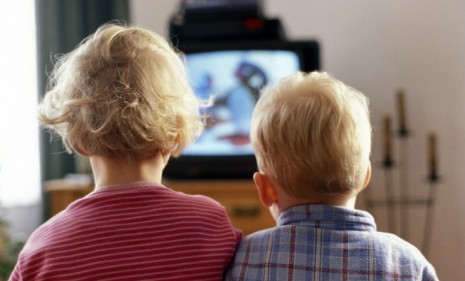Why isn't it cheaper to raise kids?
Economist Bryan Caplan stirs up debate with a controversial new book telling parents to quit wasting so much time and money on their children

A free daily email with the biggest news stories of the day – and the best features from TheWeek.com
You are now subscribed
Your newsletter sign-up was successful
Everyone has heard the nightmarish stats on how much kids cost. According to the feds, a couple making between $57,000 and $98,000 a year, before taxes, will cough up $222,360 raising a child to age 17. And many moms and dads feel that childcare and kid-chauffering duties seriously limit their career opportunities. But economist Bryan Caplan, author of the new book Selfish Reasons To Have More Kids, says there's no persuasive reason to devote so much time and money to parenting. Here, a brief guide to his contrarian take:
So... we're spending too much on kids?
"In a nutshell," says Sierra Black at Strollerderby, "Caplan believes that parents are 'overcharging' themselves for their children." By committing to intense tactics like attachment parenting, which requires moms to carry newborns non-stop and respond to their every desire, they're unnecessarily robbing themselves of time. Parents also feel obligated to spend a fortune on lessons of every kind, and an endless stream of educational videos and toys.
The Week
Escape your echo chamber. Get the facts behind the news, plus analysis from multiple perspectives.

Sign up for The Week's Free Newsletters
From our morning news briefing to a weekly Good News Newsletter, get the best of The Week delivered directly to your inbox.
From our morning news briefing to a weekly Good News Newsletter, get the best of The Week delivered directly to your inbox.
And all that expensive attention is really unnecessary?
Yes. Caplan says the bottom line is that nature — the kids' genes — mostly determines who they'll be; the power of nurture, he says, is minimal. Research on twins and adopted children shows that kids raised by highly educated parents with big vocabularies, for example, tend to know more words when they're tiny. But by the time they reach age 12, "the effect of enriched upbringing on vocabulary was barely visible," Caplan says in The New York Times.
So what should parents do?
Save your money, relax, and don't be afraid to have more kids. In Caplan's view, says Brian Doherty at Reason, "it's perfectly OK and harmless to rely on 'electronic babysitters' such as TV and video games, as well, to make parenting less costly on you." He wants parents to focus instead in enjoying the experience of parenthood, and watching their kids grow up. "Most people think that raising decent kids requires decades of unpleasant sacrifices," Caplan tells the Times. "No wonder they’re tempted to keep their families small — or remain childless."
A free daily email with the biggest news stories of the day – and the best features from TheWeek.com
What do the critics say?
Caplan is reading too much into the twin studies, says Tyler Cowen at Marginal Revolution. The same kid will turn out vastly different if raised by Amish, or Chinese-American, or orthodox Jewish parents; nurture likely has more influence than Caplan cares to admit.
Sources: Infographic Insights, Strollerderby, NY Times, Reason, Marginal Revolution, Wall St. Journal (2)
-
 House votes to end Trump’s Canada tariffs
House votes to end Trump’s Canada tariffsSpeed Read Six Republicans joined with Democrats to repeal the president’s tariffs
-
 Bondi, Democrats clash over Epstein in hearing
Bondi, Democrats clash over Epstein in hearingSpeed Read Attorney General Pam Bondi ignored survivors of convicted sex offender Jeffrey Epstein and demanded that Democrats apologize to Trump
-
 Are Big Tech firms the new tobacco companies?
Are Big Tech firms the new tobacco companies?Today’s Big Question Trial will determine if Meta, YouTube designed addictive products